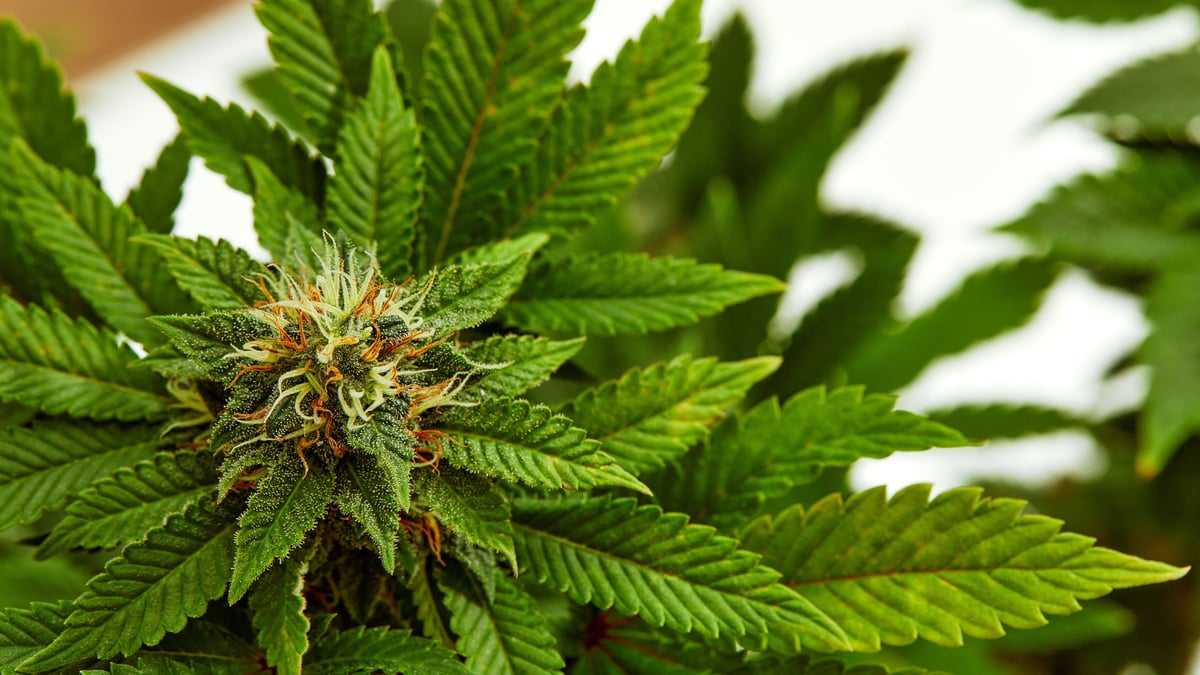
The Green Invasion: China's Shadow in America's Cannabis Fields
In the heart of America's rural landscapes, a clandestine battle is unfolding—one that pits national security against the booming cannabis industry. On September 18, 2025, the House Homeland Security Subcommittee on Oversight, Investigations, and Accountability will convene a pivotal hearing titled “Invasion of the Homeland: How China is Using Illegal Marijuana to Build a Criminal Network Across America.” This event shines a spotlight on allegations that Chinese nationals and organized crime groups are infiltrating the U.S. through vast illegal marijuana operations, turning fertile farmlands into hubs of exploitation, money laundering, and geopolitical maneuvering. As the date approaches, lawmakers like Senator Chuck Grassley (R-IA) and Senator Susan Collins (R-ME) have voiced alarms over this "proliferation of illegal cannabis activity associated with China," linking it to transnational criminal networks and even the People's Republic of China government itself. With billions in illicit revenue at stake, this isn't just about weed; it's a story of economic sabotage, human suffering, and the urgent need for federal reform in an industry still fractured by prohibitionist legacies.
The narrative begins with the rapid expansion of these operations post-2018 Farm Bill, which inadvertently opened loopholes for hemp-derived products but failed to curb black-market grows. Reports indicate that Chinese-funded farms have sprouted across states like Maine, Oklahoma, New Mexico, and California, often masquerading as legitimate ventures. In Maine alone, the Department of Homeland Security identified at least 270 such sites in 2023, generating an estimated $4.37 billion annually—funds that allegedly flow back to criminal syndicates without the scrutiny of regulated banking. This hearing arrives amid a push for rescheduling marijuana from Schedule I to III under the Controlled Substances Act, a move opposed by some who argue it could empower these foreign cartels further. Yet, the facts paint a picture of a shadow economy thriving precisely because of federal inaction, where illegal operators undercut legal markets and poison communities with pesticide-laced products.
Congress Awakens: Scheduling the Showdown on Illicit Weed Networks
The September 18 hearing, set in the halls of Congress, marks a rare bipartisan convergence on cannabis-related national security threats. Chaired by the Homeland Security Committee, it builds on a 2024 House spending bill report that mandated federal probes into "connections or links to Chinese transnational criminal organizations and/or the government of the People’s Republic of China." Witnesses remain unannounced, but expect testimonies from law enforcement, intelligence experts, and perhaps victims of these operations. Senator Grassley highlighted thousands of Oklahoma medical marijuana businesses flagged for suspicious Chinese ties in the past year, while Senator Collins has grilled officials on Maine's grow houses during prior sessions.
This isn't mere rhetoric; it's backed by raids and indictments. In January 2025, the DEA, FBI, and EPA announced charges in a massive Navajo Nation operation, seizing 60,000 pounds of marijuana and 260,000 plants from 20 farms run by Chinese nationals. Such actions underscore the hearing's urgency, as officials like former DEA Special Agent Derek Maltz describe it as "brilliant unrestricted warfare" by the Chinese Communist Party, aiming to "destroy Americans’ brains" through pure, illicit strains that lead to harder drugs. The committee's focus will likely dissect how these networks evade detection, using cash-heavy transactions to fund broader crimes without traceable wire transfers.
Billions in Buds: Uncovering the Vast Illegal Operations
The scale is staggering. Oklahoma's illicit marijuana market alone is now valued at over $100 billion, with more than 3,000 grows operated by Chinese nationals generating $40 billion yearly in untaxed revenue. Nationwide, ProPublica reports that Chinese organized crime dominates the illegal market, controlling operations from coast to coast. In California, CNN investigations revealed black-market farms hidden in upscale homes, with 855 cultivation sites raided in 2024, yielding 55.6 tons of processed marijuana, 156 weapons, and 209 arrests—many tied to Chinese and Mexican rings.
New Mexico's Bliss Farm exemplifies the model: 200 greenhouses exceeding state limits, leading to a $1 million fine and license revocation in 2023. These farms often start with small Chinese investors lured by social media promises, but evolve into sophisticated enterprises. The Heritage Foundation notes U.S. law enforcement linking these to Chinese diplomats and CCP-affiliated groups, with Reuters reporting Chinese investment in illegal weed as a key concern in 2025. DEA's latest data tracks a decline in overall marijuana trafficking due to state legalizations, but a spike in Chinese-linked grows, highlighting how prohibition gaps fuel this invasion.
From Farms to Nightmares: Exploitation and Crime in Hidden Grows
Beyond profits, the human toll is harrowing. Workers, often trafficked Chinese immigrants, endure slave-like conditions: 14-hour shifts, chemical burns, malnourishment, and physical abuse. In Shiprock, New Mexico, 15 workers sued over forced labor at a farm fined $1 million, while an Oklahoma investor, Chen Wu, received life for murdering four demanding payback. Environmental hazards abound—leaking pesticides pollute waterways, and unlicensed ops disregard safety.
Maine's scandal involves a former lawmaker's shell companies tied to Chinese crime groups, infiltrating even political spheres. NPR uncovered how mafia elements control these trades, blending with fentanyl crises where Chinese chemicals fuel U.S. overdoses. Victims are trapped, passports confiscated, in a web that extends to money laundering and arms purchases, all under the radar.

Weed as Weapon: How Illegal Marijuana Fits into Broader Chinese Strategies
This isn't isolated; it's part of China's alleged hybrid warfare. FAIR warns of immigration weaponization, with illegal aliens staffing grows amid border surges. Cash from these operations bypasses sanctions, funding espionage or influence ops. Links to CCP include diplomats aiding syndicates, per intelligence reports. As a $100 billion underworld, it undermines U.S. sovereignty, poisoning youth and eroding legal economies.
Fighting Back: Bolstering Legal Marijuana Online, Wholesale, and White Label
Countering this requires strengthening legal channels. Regulated Marijuana Online platforms, Marijuana Wholesale networks, and Marijuana White Label services offer safe, traceable alternatives, cutting black-market appeal. Full federal legalization could integrate banking, reducing cash vulnerabilities. States like Oklahoma show that closing loopholes shrinks illicit ops, protecting consumers from tainted products.
The Path Forward: Securing America's Cannabis Future
As the hearing unfolds, it could catalyze reforms—tighter borders, better oversight, and rescheduling to empower legal markets. With $4.37 billion in Maine and $100 billion in Oklahoma at play, ignoring this invites deeper infiltration. America must reclaim its fields, turning green gold into a secure, prosperous industry for all.
Discover the premium difference with D Squared WorldWide's wholesale marijuana products—crafted for excellence in a landscape threatened by illicit Chinese operations. As Congress spotlights the dangers of unregulated grows exploiting workers and flooding markets with tainted buds, choose our legally compliant, high-quality strains sourced from trusted U.S. farms. From Marijuana Online platforms to bulk Marijuana Wholesale deals and customizable Marijuana White Label solutions, we ensure purity, potency, and traceability every step. Avoid the risks of black-market infiltration; partner with us for safe, profitable ventures. Schedule a call today to elevate your business!
Reference:
1. Bouchard, M., Zakimi, N., & Gomis, B. (2024). Cannabis legalization and its effects on organized crime: lessons and research recommendations from canada. Sociological Inquiry, 95(2), 394-414. https://doi.org/10.1111/soin.12619
2. Fischer, B., Jutras‐Aswad, D., & Hall, W. (2023). Outcomes associated with nonmedical cannabis legalization policy in canada: taking stock at the 5-year mark. Canadian Medical Association Journal, 195(39), E1351-E1353. https://doi.org/10.1503/cmaj.230808
Lo, T. and Kwok, S. (2024). Chinese triads and the notion of territory. Criminology & Criminal Justice, 25(1), 265-282. https://doi.org/10.1177/17488958241301947



